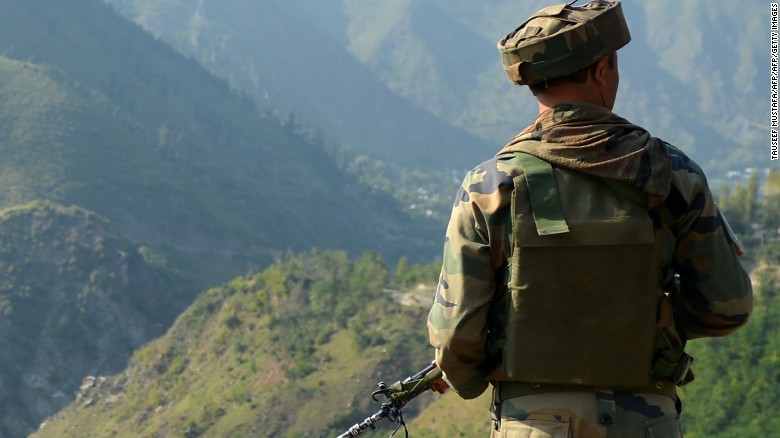South Asia's nuclear one-upmanship ramps up with Pakistan missile test
The Pakistani army has successfully test-fired a nuclear-capable cruise missile from a submarine for the first time, less than a month after India launched its Agni-V missile.
Inter-Services Public Relations, the media wing of Pakistan's military, says its missile, the Babur-3, will help bolster the country's defenses as its neighbors develop their own technology.
ISPR called the test "a manifestation of the strategy of measured response to nuclear strategies and postures being adopted in Pakistan's neighborhood," which could be read as a veiled reference to India.
Retired Pakistani army officer, Lt. General Talat Masood told CNN this attempt by Pakistan to develop a genuine second-strike capability, is "only the beginning".
But maintaining second-strike capability -- the ability to hit an adversary back after already being attack -- with a submarine fleet is costly, both financially and diplomatically, Masood said.
Pakistan currently has eight submarines in its fleet, according to Jane's Defense Weekly. To realistically deter an enemy, three of them would have to be equipped with working nuclear-capable missiles, Masood said.
A 'nuclear daisy chain'
Pakistan's launch comes after India tested its intercontinental Agni-V ballistic missile in December.
Analysts say Pakistan has been working on its second-strike capability for some time, so the timing may not have been affected by India's launch.
One expert, however, says India likely won't lose sleep over this test.
"It is a threat, but something the Indian navy is confident it can deal with," Bharat Karnad, a research professor at India's Centre for Policy Research told CNN.
From a deterrence standpoint, Karnad says it makes sense for Pakistan to publicly trumpet its missile launch in order to dissuade adversaries from moving against Islambad.
But India isn't overly worried about deterring Pakistan -- they've got their eye on China, and China in turn is focused on United States, according to Karnad.
"It's a nuclear daisy chain to which there is really no solution," Karnad says. "It is the largest strategic problem for the region."
CNN has reached out to Indian authorities for comment but is yet to receive a response.

Kashmir: A bitter dispute
Missile development
Islamabad is believed to have developed the Babur-3 after reverse-engineering US missiles discovered nearly intact in Pakistan in the 1990s.
The missile is variant of a ground-launched cruise missile and has a range of 450km, ISPR said, adding that it incorporates "state of the art technologies including underwater controlled propulsion and advanced guidance and navigation features."
"The missile features terrain hugging and sea skimming flight capabilities to evade hostile radars and air defenses, in addition to certain stealth technologies," according to the ISPR announcement.
While Karnad predicted a muted response from India, Jane's says the launch is likely to increase tensions between Pakistan and India due to the recent instability in Kashmir.
A series of deadly clashes reignited concerns about stability in the contested region late last year.
Pakistan accused India of "naked aggression" along the Line of Control -- which divides the two sides of the disputed region, while India charged Pakistan with violating a ceasefire and supporting terrorists.
News Courtesy: www.cnn.com











